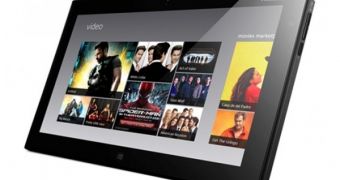A couple of years ago, people would have been called crazy if they said today's consumer electronics market would turn out like this, but their vindication would not be in small supply.
Back then, when Apple launched the iPad, some other IT companies scrambled to release similar devices, but most of the big names had reservations.
Some even said that the hype would quickly pass and that, ultimately, tablets wouldn't become more than a small niche segment.
The Apple iPad and all the Android rivals that came later completely battered this forecast and then smashed it to smithereens.
Now, there is greater demand for slates than for mobile personal computers (notebooks), even with ultrabooks selling.
In fact, it is believed that the third quarter of 2012 (July-September) will end with higher tablet sales than notebook shipments.
20-30 million low-end units are poised to be sold, which don't include the iPad, Samsung Galaxy Tab or other high-profile brands.
To be fair, Microsoft's Windows 8 is also affecting the situation, and not in a good way. While it is fully expected to enable a new wave of PC sales, that won't come to pass until October, which is in Q4 not Q3.
In the meantime, prospective buyers who do want a PC are very likely to delay their purchase, further decreasing laptop and desktop orders.
All in all, ultrabooks are failing in their main goal, that of once again switching customer favor away from slates and back to portable computers.
Then again, the notebook segment has been fairly saturated for years, and it is only a matter of time before the tablet market reaches a similar state. Even if tablets do get ahead of notebooks and stay there for a quarter or two, it is unlikely for this ranking to persist in the long term.

 14 DAY TRIAL //
14 DAY TRIAL //